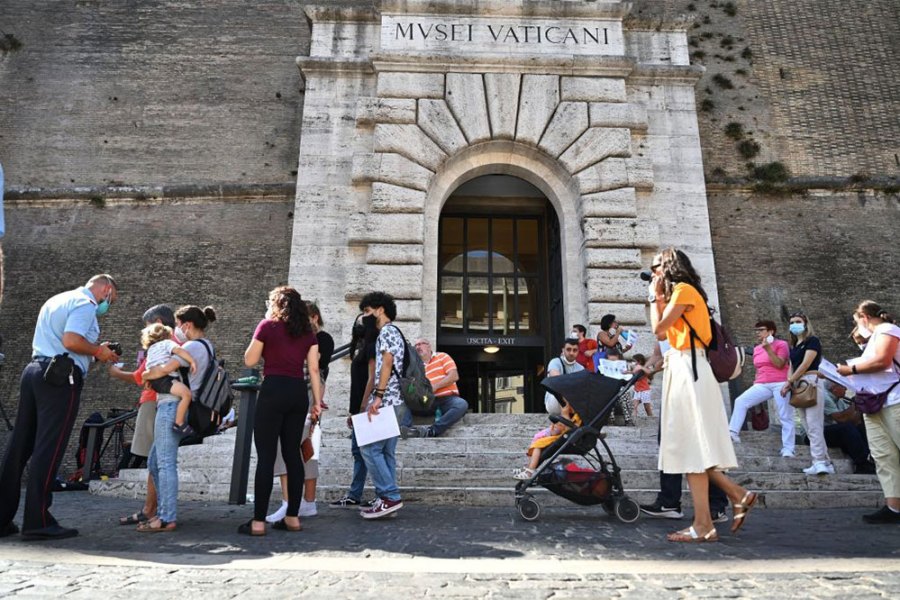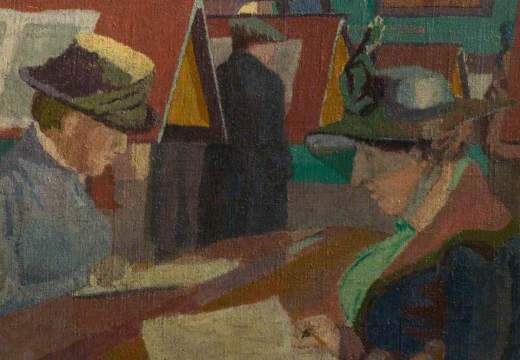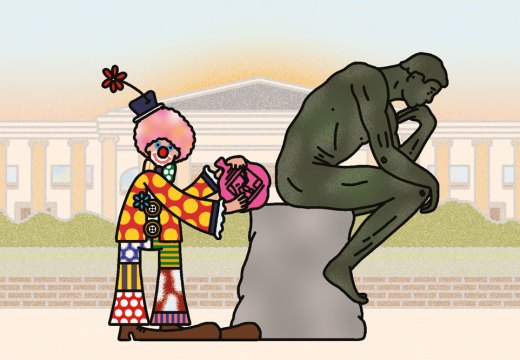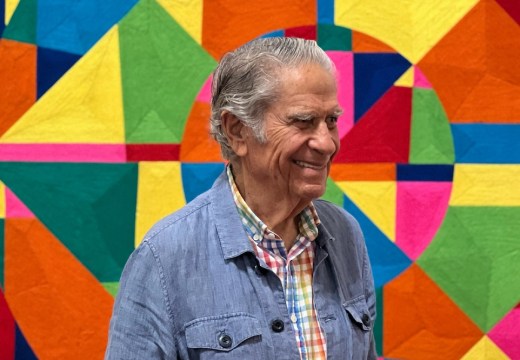When Italy first introduced the requirement for Covid-19 passes to enter public spaces in early August, the controversial decree led one museum director in Naples to resign. Fabrizio Masucci, director of the Museo Cappella Sansevero, published an open letter stating that ‘museums are by their very vocation places of inclusion, and that equal access to art and culture [is] a right to all’. He also argued that given the safety measures already in place, the introduction of these ‘green passes’ was ‘not linked to epidemiological assessments’ of risk but simply a way of furthering the government’s vaccination campaign.
Though extreme, Masucci’s reaction echoed protests across the country as well as those in France, which had introduced the pass for venues with more than 50 people on 21 July. In Italy agitated protestors occasionally turned violent – in one incident on 30 August a news reporter was punched repeatedly in the face – while in France demonstrations drew a turn-out that was unusually high for the summer months, week after week. Yet in terms of progress in controlling the pandemic, the European countries where Covid-19 passes have been rolled out appear to be enjoying their effects. In France, ‘health passes’ have been credited with improving the previously sluggish take-up of vaccinations as well as boosting the number of people taking regular Covid tests. The daily case rate has dropped by more than half from the 21,000 new cases recorded on 21 July.
There are a few options for obtaining a pass. In France, holders must either be fully vaccinated, have a certificate proving recovery from Covid-19 in the past six months or a negative PCR or antigen test in the last 72 hours. In Italy, the requirements are similar, although the negative result must be from the past 48 hours and the pass is allocated after just one vaccination. Meanwhile in the US, in the absence of a federal mandate, the museums of New York have been included in the city’s ‘Key to NYC’ programme, which asks for proof of vaccination for entering restaurants, gyms and entertainment venues. The pass can be acquired after just one dose.
‘The choice [to comply] is easily made for any museum director,’ says Sophie Lévy, the director of Musée d’arts de Nantes, who was more or less willing to go along with any policy that meant the museum could reopen its doors. ‘It’s been awful, a terrible negation of what we’re trying to do,’ she says of the forced closures last winter. Apart from one week of disruption at the start, when the museum’s system for scanning QR codes failed to recognise foreign certificates, she describes the transition as a smooth one. Once the requirement in France was extended to long-distance transport and restaurants on 9 August, having the pass became as natural as carrying ID. ‘It entered common use – just as the mask quickly became normal,’ says Lévy.
Arturo Galansino, director of Palazzo Strozzi in Florence, has also found the public to be receptive. He had worried the museum might lose visitors after the law was brought in, but noted no change in footfall and was pleased to welcome 55,000 visitors over three months to the museum’s summer exhibition, dedicated to American art on loan from the Walker Art Center in Minneapolis. Earlier in the year the museum had unveiled a large-scale outdoor installation, The Wound, by the French street artist JR. The work, which creates the illusion of a massive rip in the building’s facade, was presented as a symbol of the pandemic’s effects on museums while also offering some kind of glimpse inside the closed-off building. ‘We were one of the leading voices in Italy talking about this distance between the public and culture,’ Galansino says, ‘so we are really happy that this distance is closed and we can be in contact with art again.’
Neither museum director sees any evidence that the public has been much discouraged by passes. ‘When we reopened after the first confinement [lockdown] in 2020 people were very cautious and attendance was low,’ says Lévy. ‘When we reopened in 2021, everyone’s desire to go back to a normal life was by then much stronger than any fear.’ If anything she suggests it may be the continued necessity to pre-book visits that is most off-putting for audiences. ‘Having to book your day and time of visit in advance completely changes the way people choose to visit a museum,’ she says.
After reaching a threshold of 75 per cent for those over 12 who are fully vaccinated, Denmark, which rolled out its ‘Coronapas’ in April, removed the requirement of a pass even for nightclubs and large-scale events. Lévy is fully supportive of the French government’s drive for more vaccinations, which can only have long-term benefits for museums. ‘The goal of the cultural sector is to stay open and offer whatever it has to audiences,’ she says. ‘The limitations are much easier to bear and adapt to than just being closed. That was really a nightmare.’
Unlimited access from just $16 every 3 months
Subscribe to get unlimited and exclusive access to the top art stories, interviews and exhibition reviews.














![Masterpiece [Re]discovery 2022. Photo: Ben Fisher Photography, courtesy of Masterpiece London](http://www.apollo-magazine.com/wp-content/uploads/2022/07/MPL2022_4263.jpg)
It’s time for the government of London to return to its rightful home